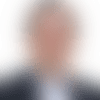College football lost one of its most legendary coaches on Sunday when Bobby Bowden died at the age of 91, succumbing to a terminal illness he publicly revealed in July. While Bowden didn't disclose his condition at the time, his son, Terry, said shortly thereafter that the College Football Hall of Famer had been diagnosed with pancreatic cancer.
"I've always tried to serve God's purpose for my life, on and off the field, and I am prepared for what is to come," Bobby Bowden told the Tallahassee Democrat on July 21. "My wife, Ann, and our family have been life's greatest blessing. I am at peace."
Born Robert Cleckler Bowden on Nov. 8, 1929, the Birmingham, Alabama, native rose to prominence as coach at Florida State from 1976 through 2009, winning national championships in 1993 and '99. The collective impact his players had on the NFL was immense. He coached three eventual Pro Football Hall of Famers (Derrick Brooks, Walter Jones, Deion Sanders), plus a 2021 HOF finalist in LeRoy Butler. FSU produced 31 first-round draft picks under Bowden, including Warrick Dunn, Terrell Buckley, Antonio Cromartie and Sebastian Janikowski. He coached an NFL general manager (Martin Mayhew), an NFL coach (Jets assistant Leon Washington), a Super Bowl-winning quarterback (Brad Johnson) and a long line of Pro Bowlers, including Marion Butts, Peter Boulware, Samari Rolle, Tra Thomas, Corey Simon, Chris Hope, Darnell Dockett and Anquan Boldin.
Known for graciousness, class and affability, Bowden parlayed his fatherly, down-to-earth demeanor into close relationships with coaches, recruits, players, administrators and media alike. He was a disarming storyteller with all the charm of a salesman, but none of the phoniness. He was also a hard-driving coach, to be sure, but one who met heart-wrenching losses with immediate perspective, and swapped in his favorite pejorative -- "Dadgum!" -- in place of any cursing. He and his wife, Ann, were married for 72 years. Three of their six children went into the coaching profession: Tommy, a 10-year head coach at Clemson; Terry, who led an undefeated Auburn team in 1993 and currently coaches at Louisiana-Monroe; and Jeff, who was an assistant coach at six schools, including offensive coordinator at FSU under his father.
Bowden was a college head coach for 44 years: four at Howard College (now known as Samford University), six at West Virginia from 1970-75, then 34 at Florida State. Bowden never coached in the NFL, even as an assistant, but once acknowledged being courted by the Atlanta Falcons.
While his two national championships came during Florida State's membership in the Atlantic Coast Conference, Bowden built the program into a national power without the help of conference membership. Long before FSU joined the ACC in 1992, the Seminoles were among college football's top teams as an independent. Bowden took over a downtrodden Seminoles program in 1976 that had gone 4-29 over the three prior seasons. The Seminoles went 5-6 in Bowden's first year, marking the only losing season of his 34-year tenure in Tallahassee. Bowden reached back-to-back Orange Bowls in the 1979 and 1980 seasons, his fourth and fifth at FSU.
Bowden sought to build the Seminoles' national profile by scheduling a heavy share of top-ranked opponents, knowing those games would give his program the recruiting advantage of network television exposure. Some of those opponents wouldn't sign a traditional, two-year, home-and-home contract with FSU, however, so Bowden agreed to play certain road games without a return home game. Never was his willingness to do so more obvious than in 1981, when the Seminoles played five consecutive road games against Nebraska, Ohio State, Notre Dame, a Dan Marino-led Pitt team and LSU, winning three of them. The 'Noles finished that season with another road game at archrival Florida. In the 1980s, Bowden combined traditional football concepts with a heavy dose of trick plays, including reverses to WR Jessie "The Jet" Hester and the fabled Puntrooskie against Clemson in 1988. Until Deion came along as an electrifying punt returner, Bowden's Seminoles also were known for aggressively rushing opposing punters for blocks instead of setting up returns. A year before Sanders' arrival, the 1984 Seminoles blocked eight punts, returning six for touchdowns.
In time, Bowden was recruiting on a level with rivals Florida and Miami in the Sunshine State, a hotbed for prep talent. He quickly established strong recruiting footholds in South Georgia, the Carolinas, Louisiana and Texas. Then, over three recruiting classes from 1995 through '97, Bowden signed prep All-American QB Dan Kendra from Bethlehem, Pennsylvania, LB Tommy Polley from Baltimore and QB Chris Weinke, from Saint Paul, Minnesota. With that, he'd taken the FSU football brand to a national level and could make his way into virtually any living room in the country.
Florida State joined the ACC in 1992, and the Seminoles dominated from the start. Bowden's teams won their first 29 ACC games until a stunning upset at Virginia in 1995, and nine consecutive ACC titles from 1992 through 2000 until Maryland took the league title in 2001. Bowden would go on to win 12 ACC titles and compile a record 14 consecutive top-five finishes in the Associated Press poll from 1987 through 2000.
Bowden's first national title, in 1993, came with some controversy. After dispatching Nebraska 18-16 in the Orange Bowl, a 12-1 FSU team was voted No. 1 despite a head-to-head loss to an 11-1 Notre Dame team that finished ranked No. 2. Bowden's 1999 national championship team left no doubt, going wire-to-wire as the top-ranked team in the country and finishing with a resounding 46-29 win over Michael Vick-led Virginia Tech in the Sugar Bowl. In Bowden's later years on the sideline, the Seminoles' performance slipped, and he was essentially forced out of the job following a 7-6 season in 2009.
He finished his coaching career with a 377-129-4 record, including a 304-97-4 mark at FSU. (Twelve wins from 2006 and '07 were vacated by the NCAA as punishment for an academic fraud scandal.)
Bowden, a graduate of Woodlawn High in Birmingham, played quarterback at Alabama. He then transferred to Howard College (now Samford University) following his marriage to Ann, and graduated in 1953. He first arrived at FSU as an assistant coach under Bill Peterson in 1963, coaching wide receivers for three seasons before being hired as Jim Carlen's offensive coordinator at West Virginia.
A devout Baptist, Bowden published the memoir "Called to Coach: Reflections on Life, Faith, and Football" in 2011. The FCA (Fellowship of Christian Athletes) began presenting the Bobby Bowden Award in 2003 to an FBS player each year, with a criteria that includes academics and community involvement along with on-field play. Nicknamed "Saint Bobby," Bowden would often give sermons at various churches on Sundays, even during the season, and traveled extensively in retirement to speak on his faith.
He and his wife lived in the same house from their arrival in Tallahassee in 1976 until his death. Ever the people's coach, he never had his address and phone number pulled from the Tallahassee phone book.
"I remember him saying to us players to be approachable to the fans, don't big-time the fans," LeRoy Butler told the Florida Times-Union. "He said, 'Say hello, sit around and let them tell you their favorite FSU stories.' When you think about it, that's how he was with people, too."
Follow Chase Goodbread on Twitter.













